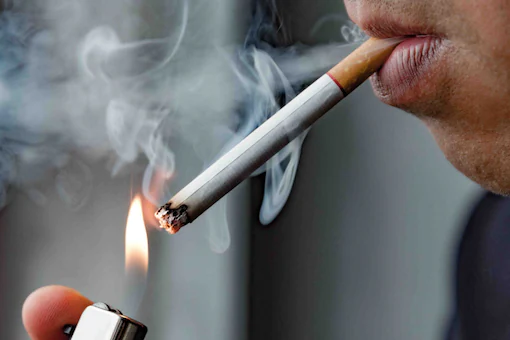According to the WHO, more than 8 million people die each year as a result of tobacco use, although tobacco use continues to rise quickly among people of all ages in the nation. It’s very addictive, and it may wreak havoc on your cardiovascular and respiratory health, as well as put you at risk for a variety of cancers. Even for nonsmokers, secondhand smoke can cause serious health problems. Every year on May 31, the world commemorates World No Tobacco Day to raise awareness about the dangers of tobacco use.
Dr. ChandraVeer Singh, a consultant otorhinolaryngologist and head and neck onco surgeon at Wockhardt Hospitals Mira Road, discusses the negative consequences of tobacco on one’s health and the need of quitting tobacco in all forms to live a disease-free life on World No Tobacco Day.
“Tobacco products, such as cigarettes, cigars, pipe tobacco, chewing tobacco, and snuff, include poisons, carcinogens, and nicotine. Cigarettes and other tobacco products contain more than 80 deadly substances. Tobacco usage in the form of smoking and smokeless tobacco is a double whammy in the country. Smokeless tobacco is the most popular type of tobacco in the nation, with khaini, gutkha, and betel quid with tobacco being the most popular.
Oral cancer as a result of tobacco use has also become a problem in India, he says. Tobacco use that isn’t under control can lead to a slew of additional life-threatening health problems.
If you smoke tobacco on a regular basis, you will get mouth cancer later in life. Tobacco products have been linked to malignancies of the cheek, gums, and inner surface of the lips, resulting in greater mortality and morbidity rates in the country. Other cancers associated with tobacco use include cancers of the throat, larynx, oesophagus, kidney, and pancreas. Tobacco usage increases insulin resistance, hypertension, acute respiratory illness, and osteoporosis, according to several research.
Cigarette smoking leads to memory loss, headaches, anxiety, tension, annoyance, frustration, and sleep disturbances.
Smoking also causes coughing, wheezing, the common cold, tuberculosis (TB), asthma, chronic obstructive pulmonary disease (COPD), emphysema, chronic bronchitis, and lung cancer. These health problems might have a negative impact on one’s quality of life. Smoking also causes a heart attack by narrowing the blood arteries in the heart.
Smoking has been shown to have a negative influence on fertility and make it more difficult to conceive. Tobacco smoking and tobacco smoke exposure can affect the reproductive system. It has the potential to harm sperm DNA. Ovarian function, oocyte quality, and hormonal modulation are all affected by smokeless tobacco. It will have a detrimental influence on both the mother and the child. Preterm labour and delivery, birth abnormalities, sudden infant death syndrome (SIDS), miscarriage, and ectopic pregnancy are all risks of smoking during pregnancy.
“Quitting cigarettes in any form may be extremely beneficial to your health. To enhance your health, avoid passive smoking and enroll in a smoking cessation program. When you’re in a pub or restaurant, you’ll experience the want to smoke. As a result, stay away from triggers in any form. Make your house a smoke-free zone. Exercising might help to distract you from your smoke cravings. When someone is stressed, they are more likely to smoke. Other relaxing methods to try include yoga and meditation.







